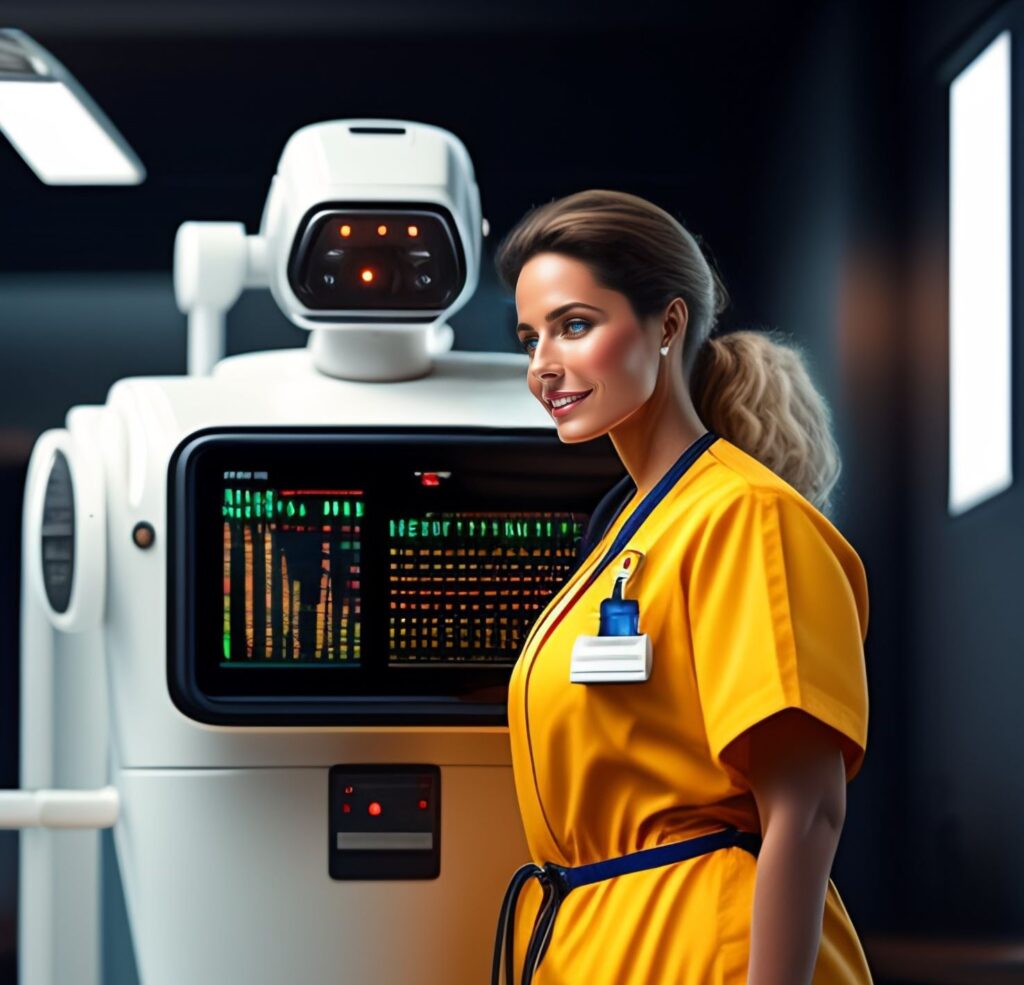
AI is being used to automate the process of analyzing scans for abnormalities and diagnosing diseases faster than ever before. Medical imaging has revolutionized the diagnosis and treatment of many diseases, as well as providing insight into how our bodies work. From X-rays to ultrasounds, medical imaging has become an essential tool in modern healthcare.
Now with the introduction of artificial intelligence (AI) technology, medical imaging is becoming even more advanced and efficient. This not only benefits patients by increasing accuracy but also helps radiologists save time on mundane tasks so they can focus on more complex diagnoses. As AI continues to advance, it will have a profound impact on radiology and other fields within healthcare.
Applications of AI in Medical Imaging
AI is quickly becoming a powerful tool for medical imaging, and its applications are far-reaching. AI can be used to automate the analysis of X-ray images, allowing radiologists to detect abnormalities faster and with greater accuracy than ever before. It can also identify tumors or other lesions that may have gone undetected in traditional scans.
AI is being applied to CT, MRI, and PET scans as well, helping doctors better diagnose diseases such as cancer or heart conditions. In these cases, AI algorithms are able to search through large datasets of patient data more quickly than humans could on their own, looking for patterns that could indicate potential health issues. This helps reduce false positives and allows clinicians to make more informed decisions about treatment plans without having to manually review every image.
In addition to diagnostics, AI has been applied in interventional radiology where it assists surgeons by providing real-time feedback during procedures such as biopsies or angioplasty. By using advanced computer vision techniques combined with deep learning models trained on thousands of images from previous surgeries, AI algorithms can help surgeons navigate complex anatomy while reducing human error and improving patient outcomes.
Future of AI in Medical Imaging
The use of AI in medical imaging raises important ethical and legal considerations. In the healthcare space, data privacy is paramount and must be taken into account when designing algorithms that process patient information.
It’s also important to consider how these systems are trained, as bias can be introduced if data from a particular demographic is underrepresented or imbalanced. Similarly, it’s crucial to ensure that automated decisions made by AI-driven systems are transparent and explainable so clinicians have confidence in the results they yield.
Finally, there are questions about liability for accidents that might occur due to errors in an algorithm’s decision-making process. If a system makes a mistake resulting in harm to patients or financial loss for hospitals, who will bear responsibility? These issues need to be addressed before AI becomes widely adopted within medical imaging departments around the world.
Conclusion
The future of medical imaging is bright, and AI will continue to have an ever-increasing role in the field. As AI advances, it will become even more capable of automating mundane tasks and providing quicker, more accurate diagnoses for doctors.
This AI technology could revolutionize radiology by freeing up clinicians to focus on complex cases and allowing them to practice at a higher level than ever before. Furthermore, its use in interventional radiology has the potential to reduce human error during procedures while also improving patient outcomes.
AI in medical imaging comes with important ethical considerations, however, such as data privacy laws and liability issues that must be addressed if this technology is going to reach its full potential.
Despite these challenges though, there’s no doubt that AI will play an integral part in how healthcare professionals diagnose diseases moving forward. With continued investment and research into machine learning algorithms, we can look forward to a future where patients receive faster diagnosis times and better treatment plans thanks to the power of artificial intelligence.
